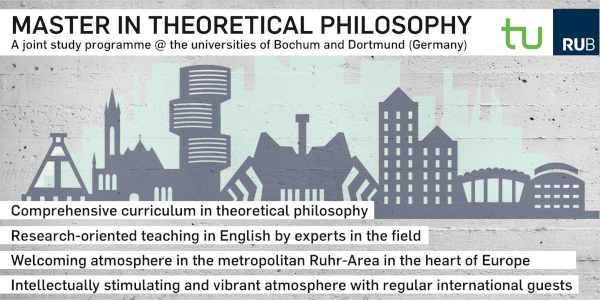How Are Today’s Philosophers Philosophical?
In a recent live interview, Tyler Cowen (GMU) asks Elijah Millgram (Utah), “To what extent do you think philosophers today are even still philosophical, in the true sense of that word?”

[Chul Hyun Ahn – Tunnel IV (detail)]
MILLGRAM: OK . . .To answer the question, you have to have a view about what it is to be philosophical, and the problem here is that I have three different views. I worry about this question a lot. I think it’s part of philosophy to be aware of the question, what is it to do philosophy right and what philosophy is. So I can run through the three takes I have really quickly —
COWEN: Give us the three quick takes, yes.
MILLGRAM: —and then you can see the worries. Sometimes I think . . .
Philosophy is an applied science. It’s the machine-tool industry of the mind. We make the intellectual tools that make the intellectual tools. We’re engineering and engineering science. We’re very high up in the value chain so people don’t notice, but that’s what we do. On that take, I have all of these colleagues—most of my colleagues who think that what they’re doing is completely useless, and they’re proud of it. They have the attitude that John Dewey complained about where you think of yourself as a member of the leisure class and you’re glad that you don’t do anything useful.
There’s a second take on philosophy that I can’t get away from, which is that it’s a response of a certain kind to the imperative of the Delphic oracle: “Know thyself.” Philosophy requires you not to take things for granted and just—OK, I had a colleague in a previous job who remarked to me that there’s a phrase that nonphilosophers use that philosophers never use. It’s starting a sentence with “My philosophy is,” and he pointed out that what’s going to follow is some view that the person simply will not reconsider or give up—but that’s not what philosophy is about. Philosophy is about noticing that there’s something you’ve been taking for granted, and maybe it’s time to have second thoughts about it.
Again, if that’s your view of what philosophy requires, there are a great many people in my line of work who don’t live up to that. That is just disappointing. They’re just very, very confident in the way they do things, and they’re not going to have second thoughts.
Then there’s a third way of seeing what philosophy is. It’s got central questions that somehow don’t go away. Plato’s Socrates asks — the question is, How should you live? That’s one of them, and Kant had these four questions, right? What can you know, what should you do, and what can you hope for — and the fourth question was, What is it to be a human being?
I think one of these questions is, What’s the meaning of life? Well, just on that last score, the meaning of life in analytic philosophy has been pushed to the very, very, very, very distant margins of the field instead of getting—as I think it should get—our most serious attention.
So, when you ask that question, I end up feeling sort of depressed.
Earlier in the conversation, Millgram says:
So, I’m a philosopher. My best conversation partners are other philosophers who I think are truth seekers and who I have enormous respect for… Some of these people I’ve known for, I guess, 40 years now, and we have overlapping interests. So we have regular conversations, and mostly neither of us convinces the other; what happens is our views evolve…
After the discussion about what it is to be philosophical, Cowen revisits this:
COWEN: Are you worried that, as you described earlier in this dialogue, all of your best conversations are with philosophers? Doesn’t that mean you’re leaving trillion-dollar bills on the table, so to speak, since philosophers know a somewhat circumscribed set of things—as would be true with any group? Why have all your best conversations with philosophers? Isn’t that a warning sign that something’s badly wrong with philosophy?…
MILLGRAM: I think this is generally true as a professional vice or handicap of philosophy. For my own part, I actually do try to—I mean, there’s two ways you can interact with nonphilosophers. There’s the dead ones— you read them— and then there are the live ones —and I try to do both, to talk to people who aren’t philosophers and also to talk to dead nonphilosophers…
If you’re too narrowly boxed into your field, especially if it’s philosophy, that won’t be good for you—but then there is also this: it’s often hard to get the nonphilosophers to engage you philosophically in the way that a philosopher would. Talking with philosophers ends up being a large part of your diet.
You can listen to or read the full interview here.



If philosophers trust their arguments, then they should make it more often to non-philosophers. Because if they can’t convince non-philosophers of their views, then perhaps their arguments aren’t as strong as they think, or rely on presuppositions that aren’t as solid as they think.
That said, it’s difficult work. I regularly present philosophical arguments to physicists. I have had some success in convincing them. Examples: I convinced a physicist that there are serious problems with taking morality to be culture-relative. I convinced another physicist that there are serious problems with taking all non-quantum probabilities to be subjective. And I have convinced a few physicists that the quantum measurement problem is nontrivial.
The three most useful qualities to have for these conversations, I think, is trust, patience, and competence.
Trust: The person you’re talking to has to trust you at some level as a serious interlocutor. And this is a harder barrier to cross than you might think, especially with physicists, many of whom take philosophy to be a waste of time. But more broadly, many non-philosophers don’t realize there are philosophical assumptions built into their views, and so are skeptical that philosophers have anything to add.
Patience: The conversation(s) needs to be over a long enough period time so that your interlocutor can raise and re-raise their objections and present new ones. And you have to be willing to patiently defuse and re-defuse the objections, and rephrase yourself, and temper your claims.
Competence: You actually need to be able to present the arguments clearly and without philosophical jargon. In the examples above, I had personally changed, at some earlier point, from the believing that morality was subjective, that all non-quantum probabilities are subjective, and that the measurement problem wasn’t serious to believing the opposite. And I had done so on the force of philosophical arguments. So I was familiar with what convinced me and what didn’t.
As an aspiring physicist it drives me insane that there are people in the field who refuse to recognize the measurement problem. It feels like watching toddlers plug their ears when they are upset.
“To what extent do you think” VS “To what extent do you quantize” is the epithome of philosophy vs science.
Sadly, even among those philosophers who live up to this ideal in general when it comes to philosophical questions, there is a tendency to fall short of it as soon as politics comes into play. Indeed, some seem more willing to take seriously the possibility that their belief in the external world or in a persisting self over time might be wrong than they are to take seriously the possibility of their favoured positions on what gender is, or how racial injustice is best corrected are mistaken.
Art… I didn’t hear any mention of art. Nature itself I really didn’t get any sense of connection to nature at all. Since nature’s it’s current condition may be the most pressing if all philosophical questions requiring a response I am a bit surprised by the article.
The interviewer is way too dismissive of Nietzsche’s continuing relevance in this interview (and conversely too admiring of his twitterati friends).
After all, what better describes the current situation we face right now and the hostile intentions of the ruling class if not the Will to PowerL
But our delusional interviewer and his friends know of far superior ways of framing the case now. Pity he didnt share them with us.
It’s a very good question.
I recently refereed a paper in philosophy of education, and in my report wrote, “I wish more philosophy papers were so thoughtful”. I was keenly aware of the irony.
One issue I think about quite a bit is professional philosophers setting themselves up to ‘have a view on X’. Surely this is the best way to make a name for oneself in a very noisy and competitive intellectual environment? But to my mind, too often this results in professional philosophers producing bad a priori social science, law, or public policy. And when I say bad, I mean embarrassingly bad. (It seems to me that ethicists are some of the worst offenders here.)
What’s the alternative? I would like to see philosophy as the ‘anti-discipline’. Like when anti-matter meets matter, when other disciplines come into direct contact with philosophy, they can find some of their most fundamental structures disintegrating…
Contrary to popular opinion amongst the people of the long CV and multiple academic awards and Honours for being an eminent authority, this may not be a bad thing.
I don’t think that there is a single correct definition of what it is to be philosophical. The most common feature of historical philosophers seems to be a desire to discover fundamental truths about the universe. Where they succeeded, new disciplines broke away from philosophy. Most of the questions we are left with will never get definitive answers, so someone looking for them will be disappointed.
Those who think philosophy is useless should be campaigning to put an end to professional philosophy. It’s an injustice to take money for something useless, especially if we don’t make it clear that it is useless.
I agree that there are many philosophers who don’t seem to question their own opinions. Many seem not to know, or care about, the case against their own view. I’m sure we are all guilty here to some degree, but the problem is rife.
I believe in philosophy at two levels – 1. Pre-science philosophy, 2. Post-science philosophy.
Early Greek philosophers, classical Indian Philosophy seem to be in first category, while some works like that of Bertrand Russell (e.g Human Knowledge: its scope and limits) seem to be that of second category. Modern cognitive sciences based on evolution (phylogenetics) , developmental psychology (ontogenetics), primatology, cognitive neuroscience, psycholinguistics, neurolinguistic, physic (esp. Quantum physics, Relativity theories) ,etc. along with phenomenology (esp. Heideggerian and Merleau-Pontyian, but also “some” Husserlian) is also of the second category. It deals with philosophical questions from the integration of insights from above mentioned sciences. Philosophy deals with – what does ‘this all’ (universe, life, society, mind) mean? And it raised questions, speculated on them under first level when there was no science. Now we have science, and now we need to ask the same fundamental questions by taking the raw material from (above mentioned) sciences.
A belated.comment, and I wouldn’t want to argue the point in a comments section, but…,
I’d say that early Greek philosophers and classical Indian Philosophy is real;philosophy, and what you call post-scientific philosophy is the reason why people question the value of the subject. If we are going to leave aside the concerns of early Greek and classical Indian philosophy then I’m not sure there’s much left to do but eternally re-arrange the furniture.